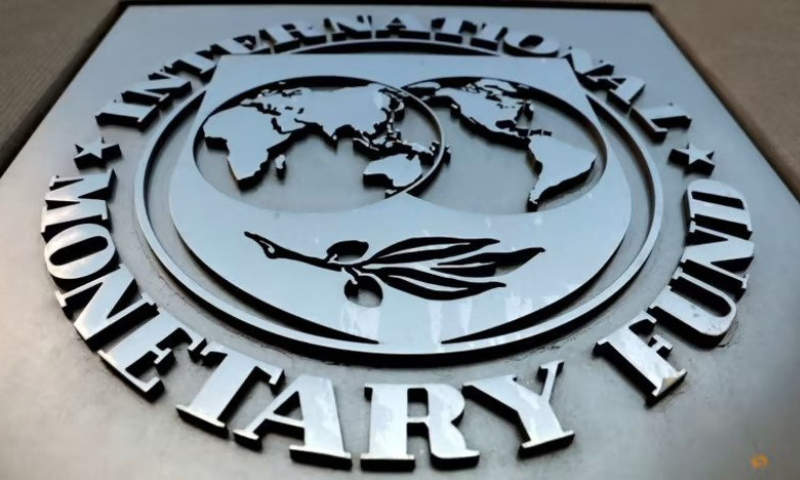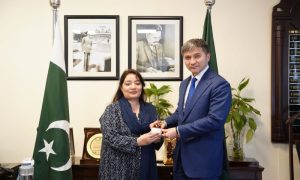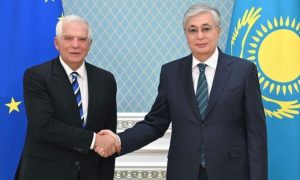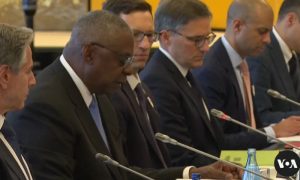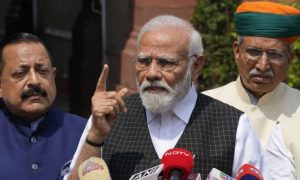ISLAMABAD: IMF had conveyed to Pakistan more than once about their lack of trust in the government IMF program and its lack of implementation. Pakistan’s economic managers had time and again violated the agreed terms and timesheet with the IMF.
Sources privy to the dialogues between Pakistan and IMF say that IMF higher-ups have conveyed to the Finance Minister and even Prime Minister Shehbaz Sharif that the trust deficit is huge between Pakistan and IMF. The last two reviews have witnessed the lack of IMF confidence in ‘Q’ Block, Pak Secretariat, where the Finance Ministry is located. This absence of faith is due to the successive government’s playing bluff with the IMF.
“When they sit on the table, they keep on agreeing on all terms, and when they get money, they (Pakistan economic managers) turn the table by backing out all the agreed terms,” says sources close to the dialogue process.
This lack of reliance resulted in two outcomes. First, the IMF designed one of the toughest programs for Pakistan in the history of 22 programs with the Fund. Secondly, IMF has delayed and extended the approval time of the trance till almost all key conditions are met.
This delay has cost a lot on Pakistan, with the depreciation of the rupee in a huge way and the procrastination of the arrival of donors’ funds. It led to the depletion of forex reserves in a big way.
Dr Ashfaq Hassan Khan calculates the cost of the program is around $ 101 billion in the interest rate, and dollar depreciation caused an increase in debt. Both have pushed the economy backward for many decades.
IMF officials have also openly voiced their concerns on various occasions with the authorities in the government of Pakistan. Until Finance Minister Ishaq Dar had to openly say three days back at a seminar about this additional deficit apart from the fiscal deficit and Balance of payment (or current account deficit) deficit. This third deficit again has to be filled by Pakistan only.
Dar blamed the entire weight of this deficit on the last PTI regime, though previous regimes should also share the responsibility as they also were not that very helpful, except the Pervez Musharraf government, which fulfilled the program rather before time and conveyed to IMF that they do not need last review and the tranche.
Though this current coalition PDM government has taken several drastic steps, including the imposition of huge additional taxes through a mini-budget. However, the struggle to get the tranche is not ending as it would have to secure more deposits of $2 billion and a $950 million loan from both the World Bank and Asian Infrastructure Investment Bank (AIIB) to ink IMF’s Staff-Level Agreement (SLA) for this review.
The officials of the ministry of finance, as always, are hopeful for the signing of the deal in every coming week, but the Fund was still unwilling to pronounce any time frame for completing the review.
On the other hand, China had successfully rolled over two commercial loans worth $1.3 billion. Pakistan is also expected to receive more installments of $500 million and $300 million from Chinese commercial banks in the coming weeks to increase its level of foreign exchange reserves.
Pakistan is targeting to enhance its foreign exchange reserves up to $10 billion (which seems very difficult) by the end of June 2023 from the current level of merely $4 billion.
To match the circular debt, the Fund is also asking to impose another Rs3.82 per unit debt surcharge as “critical” for the resolution of the power sector crisis, which would still climb to Rs2.4 trillion despite a colossal hike in the power tariffs. This addition would bring Rs284 billion more from electricity consumers into the kitty.
As of December 31, 2022, around Rs 224 billion was paid as interest charges from the electricity generation portion. The government’s fiscal problems would be heightened, including in the power sector, because of an expected around 3% rise in the markup by the SBP.
The government recently borrowed from the banks at a 19.95% interest rate for three months after banks refused to lend loans at an 18% rate. CPI in February was 31.5%, again one of the highest in the history of the country.










